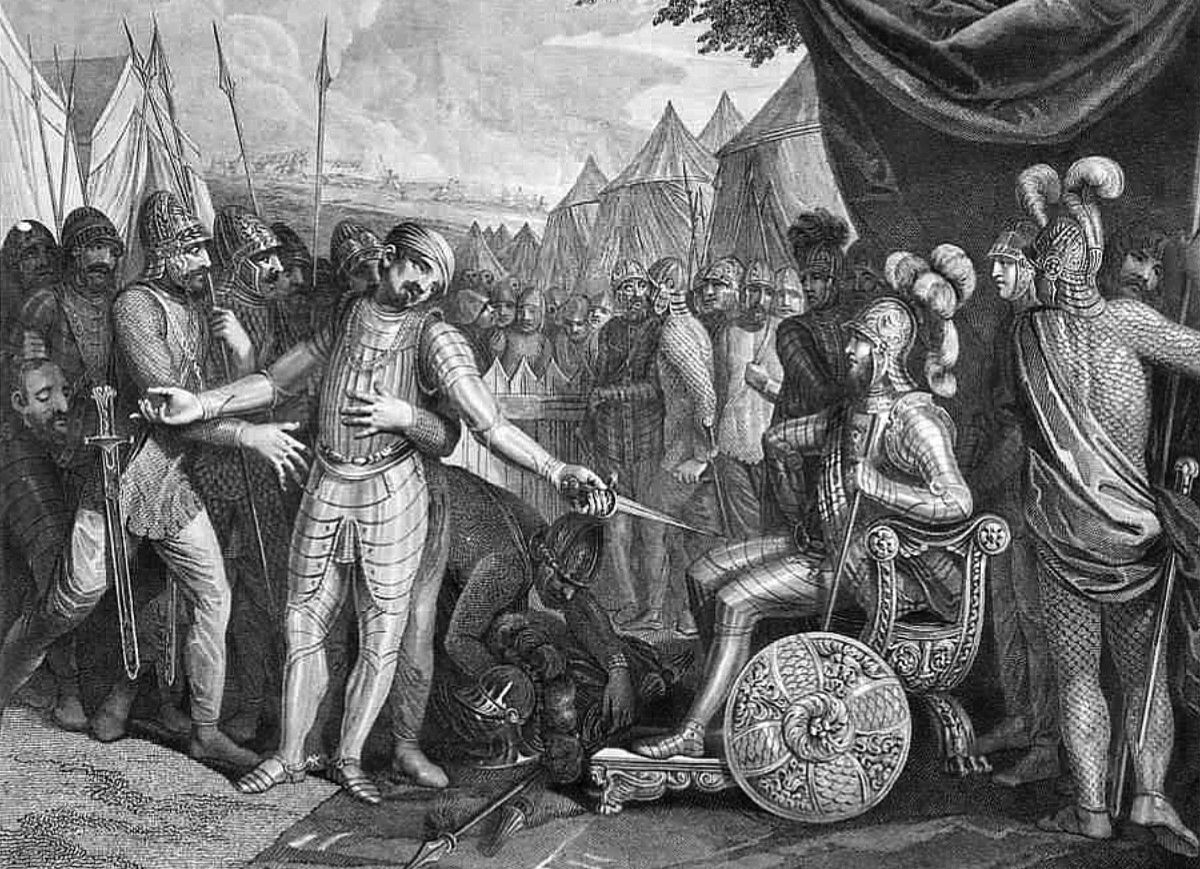
Cherokee: a name that evokes images of rich cultural heritage, ancient traditions, and a deep connection to nature. This Native American tribe has a fascinating history that spans centuries, with a legacy that continues to shape the present-day. With a unique language, intricate artistry, and enduring resilience, the Cherokee have left an indelible mark on American history.
In this article, we will delve into 9 astonishing facts about the Cherokee tribe, shedding light on their achievements, struggles, and contributions to society. From their complex societal structure to their prowess in agriculture, the Cherokee have a story that deserves to be celebrated and recognized. So, let’s embark on a journey through history and gain a deeper understanding of this remarkable indigenous people.
Key Takeaways:
- The Cherokee have a rich cultural heritage, including their own language, art, and music, passed down through generations, making them the largest tribal government in the US.
- The Cherokee’s resilience, matriarchal social structure, and contributions to art and literature showcase their remarkable journey and impact on the world.
The Cherokee have a rich cultural heritage.
The Cherokee people have a vibrant and diverse cultural heritage that spans thousands of years. They have a unique language, art, music, and storytelling traditions that have been passed down from generation to generation.
The Cherokee Nation is the largest tribal government in the United States.
With more than 370,000 tribal citizens, the Cherokee Nation is the largest Native American tribe in the United States. They have their own tribal government and a strong sense of community and pride.
The Cherokee syllabary was invented by Sequoyah.
Sequoyah, a Cherokee silversmith, developed a writing system that allowed the Cherokee people to communicate in their own language. The syllabary consists of 85 characters representing syllables, making it one of the few writing systems in the world developed by a single person.
The Cherokee were forced to relocate on the Trail of Tears.
In the early 19th century, the Cherokee people were forcibly removed from their ancestral lands in the southeastern United States and made to march thousands of miles to present-day Oklahoma. This tragic event, known as the Trail of Tears, resulted in the deaths of thousands of Cherokee people.
The Cherokee have a matriarchal social structure.
The Cherokee society is traditionally organized around clans, with each clan tracing its lineage through the mother’s side. Women have played a crucial role in Cherokee governance and decision-making.
The Cherokee are known for their traditional medicine practices.
The Cherokee have a deep understanding of herbal medicine and natural healing techniques. They have a long history of using plants and traditional remedies to treat various ailments and promote overall well-being.
The Cherokee have a strong connection to nature and the land.
The Cherokee people have a deep-rooted reverence for the natural world. They believe in the interconnectedness of all living beings and the importance of preserving the environment for future generations.
The Cherokee have made significant contributions to art and literature.
Many talented Cherokee artists and writers have made a mark in the art and literary world. Their works reflect their cultural heritage and provide insights into the Cherokee history and traditions.
The Cherokee have a renowned cuisine.
The Cherokee cuisine is a delightful blend of traditional ingredients and flavors. From fry bread to succotash, their dishes offer a unique culinary experience that showcases their cultural heritage.
Conclusion
In conclusion, learning about the Cherokee people and their rich cultural heritage is truly fascinating. From their oral traditions and deep connection to nature, to their resilience and contributions to American history, the Cherokee have left an indelible mark on the world. The nine astonishing facts about the Cherokee highlighted in this article only scratch the surface of their complex and vibrant culture. Exploring more about the Cherokee can lead to a deeper understanding and appreciation for their legacy and the important role they play in shaping American society today.
FAQs
Q: What is the history of the Cherokee tribe?
A: The Cherokee people have a long and complex history dating back thousands of years. They were one of the Native American tribes forced to relocate through the infamous Trail of Tears in the 1830s.
Q: What are some Cherokee cultural traditions?
A: The Cherokee have a rich cultural heritage, including traditional storytelling, pottery, basket weaving, and the use of medicinal plants. They also hold an annual celebration called the Cherokee National Holiday.
Q: What is the Cherokee syllabary?
A: The Cherokee syllabary is a writing system invented by Sequoyah, a Cherokee scholar. It consists of 85 characters representing syllables, making it one of the few writing systems developed by an individual.
Q: Are there any famous Cherokee people?
A: Yes, several famous individuals have Cherokee heritage, including Will Rogers, the famous actor and comedian, and Wilma Mankiller, the first female Principal Chief of the Cherokee Nation.
Q: Where can I learn more about the Cherokee?
A: There are various resources available to learn more about the Cherokee, including books, documentaries, and visiting cultural heritage sites such as the Cherokee Heritage Center in Oklahoma.
Q: Are the Cherokee a federally recognized tribe?
A: Yes, the Cherokee Nation is a federally recognized Native American tribe. They have their own government, laws, and institutions.
Q: Do the Cherokee still exist today?
A: Yes, the Cherokee people still exist today. They continue to maintain their cultural identity, traditions, and sovereignty as a distinct Native American nation.
Q: What is the significance of the Cherokee Nation?
A: The Cherokee Nation holds great significance in American history. They were one of the original tribes to engage in diplomatic relations with the United States and have played a prominent role in shaping the nation’s history.
Q: How can I support the Cherokee people?
A: Supporting the Cherokee people can be done through various means, such as learning about their culture, visiting Cherokee-owned businesses, or supporting organizations that work to preserve Cherokee heritage and support tribal communities.
Intrigued by Cherokee history? Continue exploring Native American culture with facts about the Echota Cherokee Tribe of Alabama. Nature enthusiasts will enjoy learning about Georgia's state flower and wildlife reserves in Cleveland, Tennessee. Expand your knowledge of indigenous peoples, flora, and fauna through these captivating articles.
Was this page helpful?
Our commitment to delivering trustworthy and engaging content is at the heart of what we do. Each fact on our site is contributed by real users like you, bringing a wealth of diverse insights and information. To ensure the highest standards of accuracy and reliability, our dedicated editors meticulously review each submission. This process guarantees that the facts we share are not only fascinating but also credible. Trust in our commitment to quality and authenticity as you explore and learn with us.


